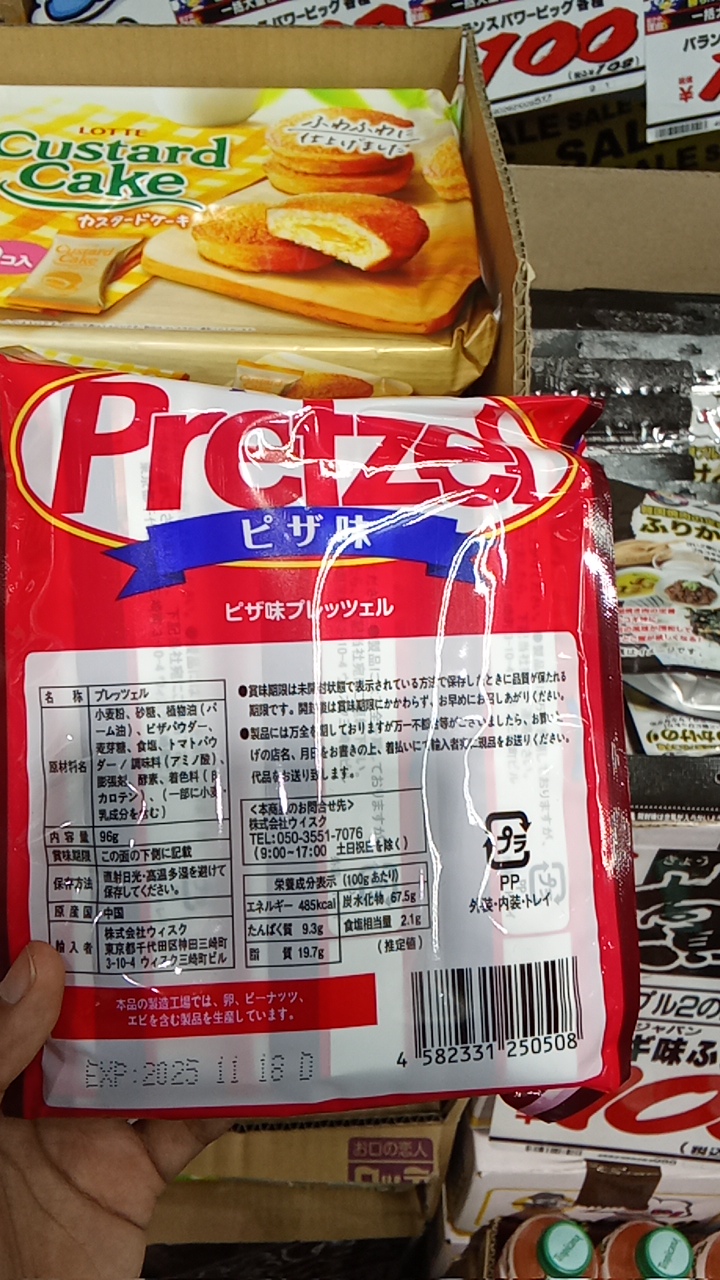
Barcode: 4582331250508
Pretze
HALAL
📝 Reason: According to Islamic dietary laws (Quran 5:3), all foods are Halal except those specifically forbidden, such as pork, alcohol, or improperly slaughtered animals. Most ingredients in ‘Pretze’ appear Halal or plant-based; however, the use of broad ingredient terms like ‘seasoning’, ‘enzyme’, ‘coloring agent’ and ‘pizza powder’ creates doubt, as such components might include animal-derived or alcohol-based elements unless certified Halal. Doubtful (Mashbooh) ingredients must be treated with caution in absence of detailed sourcing or clear Halal labels, as detailed by IFANCA guidance and multiple international Halal authorities.
🏷️ Category: Crackers, Snacks
📄 Certificates: ピザ味 (Pizza Flavor), Exp:2025 11 18 D, Vegetarisch
Ingredients:
Details
Understanding the Halal Status of Pretze
As consumers become increasingly aware of their dietary restrictions, the question of whether a product is Halal has become more relevant. In this post, we will explore the Halal status of Pretze, a popular snack in the Crackers, Snacks category. According to Islamic dietary laws (Quran 5:3), all foods are considered Halal unless they contain specific haram (forbidden) ingredients. So, is Pretze Halal? Let’s dig deeper into its ingredients!
Halal Confirmation
Pretze carries a Halal status, meaning that its ingredients are either plant-based or considered permissible in Islamic law. However, it is vital to analyze each component closely to ensure compliance with Halal standards.
Ingredient Analysis
Below, we break down each ingredient in Pretze, looking for any potential Halal concerns:
- Wheat Flour – This ingredient is naturally Halal, plant-based, and poses no Haram concerns. [Source]
- Sugar – Generally considered Halal; however, if processed with bone char from non-Halal animals, concerns may arise. In this context, it appears compliant. [Source]
- Vegetable Oil – Typically Halal unless mixed with animal fat. Here, it does not indicate any such contamination. [Source]
- Pizza Powder – This term can be ambiguous, potentially containing cheese or enzymes from non-Halal sources. Due to this uncertainty, it is advisable to proceed with caution. [Source]
- Maltose – A sugar derived from starch, generally considered Halal. No Haram sources indicated. [Source]
- Salt – A mineral that is Halal in all its forms, thus posing no concerns. [Source]
- Tomato Powder – Dehydrated tomatoes, which are Halal. [Source]
- Seasoning – This term is vague and can include various flavor enhancers and animal-derived substances. Without specific details or a Halal certification, it remains doubtful (Mashbooh). [Source]
- Expansion Agent – Usually linked to leavening agents like baking powder, which is considered Halal unless contaminated. Nothing here raises concerns. [Source]
- Enzyme – These can derive from microbial, plant, or animal sources. If sourced from animals, they must be Halal slaughtered—specific details are not provided here, raising potential doubts. [Source]
- Coloring Agent – Ambiguous and could potentially include Haram ingredients. Without specific information, it remains doubtful. [Source]
- Beta Carotene – A plant-based colorant and is Halal. [Source]
Conclusion
In summary, while Pretze is labeled Halal, the presence of certain ambiguous ingredients such as ‘seasoning,’ ‘enzyme,’ and ‘coloring agent’ creates a need for cautious consumption. Adhering to the principles of Halal requires that ambiguous components be avoided unless clearly certified. If you’re committed to following Halal dietary guidelines, it might be wise to reach out to the manufacturer for detailed ingredient sourcing, especially for the uncertain components. Remember, as elaborated by authorities like IFANCA and various international Halal organizations, staying informed is key to making safe choices. Enjoy your snacking responsibly with bodily awareness!
